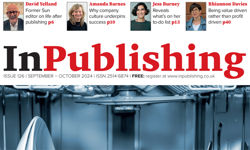Why the media class was blindsided by Brexit
When Danny Blanchflower retired from playing football, he was hired as a TV pundit. Before his first big game, he listed the qualities of the players and the strengths of the teams. Then the interviewer asked who he thought was going to win. “Oh, I don’t know that,” said Danny. "That’s why they’re playing the game."
Danny didn’t last long as a pundit. It’s not surprising because he was clearly refusing to go along with the delusion that underpins the entire trade. When two sides contend on any given day, the question of which one will prevail has nothing to do with which one’s best. It’s simply the one that happens to win.
I am writing this in the days following the EU referendum, which was a further illustration of the great truth behind what the great Danny was saying there.
Furthermore, the gobsmacked reaction to the outcome from we in the media, the very people who pride ourselves on being able to read the national tea leaves, is definitive proof of the three-word sentence which William Goldman used to sum up his experience of years in Hollywood.
Nobody knows anything.
The first thing that became clear from the stunned reaction to the outcome was that everyone was surprised. The winners didn’t expect to win and the losers had never seriously thought they might lose. This was despite the fact that all the predictions in the run-up to the day kept coming back with the same message. It’s 50/50. A coin toss. It could go one way, it could just as easily go another, depending on what happens in the run-up and what the weather’s like on the day. That’s why they’re playing the game.
Don’t mention the referendum
In the days following the result, I attended two gatherings of friends and family in different parts of the country. The first, which was in the north, had a preponderance of people over the age of fifty. They didn’t talk about the referendum because, I suspect, they assumed they had all voted ‘leave’. They may not have done.
A day later, I attended another occasion in London. This had a preponderance of people under the age of fifty and a smattering of media folk. These people didn’t talk about the referendum because the hostess had asked them not to, and also because most of them assumed that they had all voted ‘remain’. They may not have done so.
The existence of these two tribes, as uncomprehending of each other as the rich and the poor that Disraeli identified as his "two nations" in the middle of the nineteenth century, has been increasingly apparent over the last twenty years to anyone, like me, who grew up in the north and visited there regularly. The conversation was different and it was conducted in a different tone.
Oddly enough, it’s been made worse by social media, which a) encourages people to seek out the company of people who think the same as they do and b) gives them the nerve to pour scorn on those who don’t share the same views, with the result that c) people with opposing views keep them to themselves until something like a referendum comes along to tease them out.
You would have thought social media would facilitate the exchange of ideas and the sharing of different perspectives. It doesn’t. If we learn anything from June 23rd 2016, it should be that.
What it does do is provide people with the reassurance of apparent togetherness when their world seems to be falling apart. In the same weekend after the referendum, my timeline was full of people reaching for the smelling salts, which is forgivable, and suggesting those who had voted for ‘leave’ were neanderthals who really shouldn’t be allowed a say, which is not forgivable. And, of course, a lot of these were media people, which is the really tragic thing.
A referendum is a blunt instrument, unsuited to a nation whose political culture is rooted in the tradition of just muddling along. If you demand people take sides, they will exaggerate their feelings on each side of the issue and you get more certainty than they feel.
My feeling is the remain faction was not convinced about the EU but would rather entrust its future to the bureaucrats it doesn’t know than the politicians it does. The leave camp was motivated less by a feeling that it could see a better way outside the EU than a strong impulse to stick up two fingers to the whole damned lot of them and that includes the media. Neither side were wholly rational actors.
Not see it coming
And the people who were most shocked the morning after seemed to be the same media, the people whose job it is to put their ear to the ground and hear the hooves of the most distant horses. I suspect that contributing to this incomprehension was the fact that all too often nowadays, people in the media only deal with other people in the media.
One of the divisions beneath the voting numbers was between those who had been to university and those who hadn’t and these days, since journalism, along with other former trades that craved the status of professions, made a degree the price of admission to even the lowliest job, you know which side of that line the media will be on.
Going to university is, of course, no sign of intelligence. Graduates lock their cars with the keys inside just as much as anyone else. They are no more capable of seeing how the changes in the Chinese economy affect them than somebody who failed to graduate from Bash Street. The only thing you can more or less guarantee from a university education is the acquisition of a veneer of sophistication and a desperate need to be admired by other, apparently sophisticated people and an accompanying assumption that less educated people have nothing to teach you.
This has done the media no favours. If you’d been working at a newspaper back in the 70s, you would have worked alongside compositors and printers who probably came from different backgrounds from the one you came from. No longer. Everybody’s in the same tappety-tappety cubicle world nowadays. There’s no ink, no stink, no banter, no open, good-natured argument with a bloke in a boiler suit, no two-way traffic of ideas. There’s just an assumption that we all think the same because we’re right and good and the other lot are wrong and bad. I couldn’t guarantee that everybody who works for the BBC voted ‘remain’ - though I wouldn’t be surprised - but I will guarantee that everybody at the BBC thinks everyone else at the BBC voted ‘remain’.
When I first worked on Smash Hits in the late 70s, the copy used to be taken to the printers in Peterborough via a retired printer called Len. Every afternoon, Len would arrive with the page proofs and sit in the office smoking and drinking tea to wait for whatever was ready to return. I often think about Len and how shocked many of today’s journalists, some of whom are members of that hyper-sensitive sub-set satirically known as Generation Snowflake, would be if they were exposed to the opinions of Len. These weren’t particularly extreme. Suffice to say, I’m pretty sure he would have been on the side of ‘leave’.
The problem with both foot soldiers and officers in today’s media army is that they’ve never met Len. Although they make a lot of noise about reflecting diversity, this tends to be only the kind of diversity they find themselves in agreement with. Until an event like this comes along to stop them in their tracks. Make no mistake, the Brexit vote wasn’t just a punch in the throat for the governing class. It was also a kick in the balls for the entire media class.












